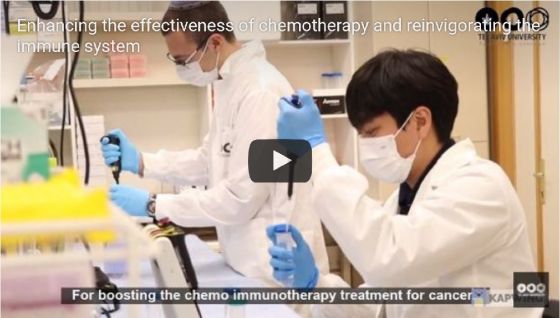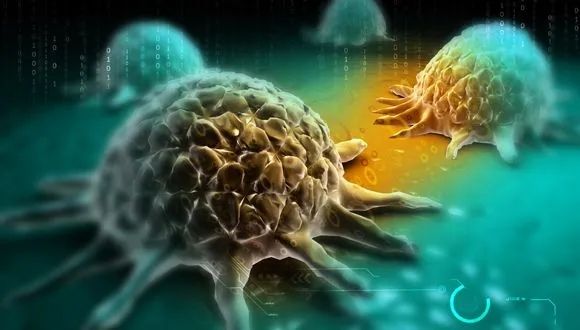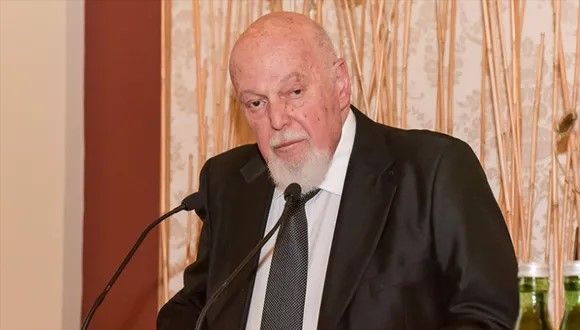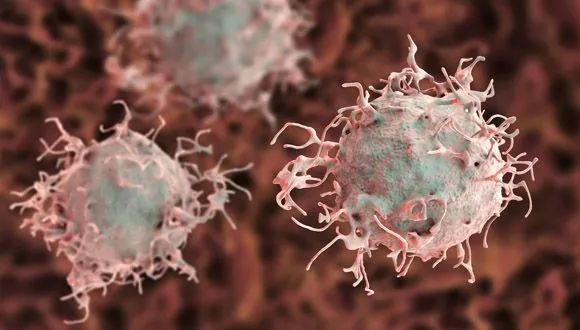
TAU Nanodrug Enables 2-in-1 Attack on Cancer
Innovation pinpoints hard-to-treat cancers and amplifies their responsiveness to treatments.
To overcome the resistance of certain cancers to different types of treatments, Tel Aviv University researchers developed a nanodrug technology that simultaneously delivers two therapies to attack malignancy with precision. The approach lays the groundwork for cancer treatments that can work faster and with fewer side effects than existing methods.
“In our system, a single nanoparticle is capable of operating in two different arenas,” explains lead investigator Prof. Dan Peer, TAU’s Vice President of R&D, who heads the Laboratory of Precision Nanomedicine at the Shmunis School of Biomedicine and Cancer Research, The George S. Wise Faculty of Life Sciences. “It increases the receptiveness of cancer cells resistant to chemotherapy, while also reinvigorating immune cells and increasing their sensitivity to cancer cells. Thus, with one precisely targeted nanoparticle we provide two different treatments, at very different sites.”
Chemo-immunotherapy, which combines chemotherapy with immunotherapy, is considered the most advanced standard of care for various types of cancer. While chemotherapy destroys cancer cells, immunotherapy encourages the immune system to identify and attack diseased cells while sparing healthy cells critical to recovery. However, many patients fail to respond to chemo-immunotherapy, indicating the need for treatments that target cancer with greater accuracy.
Potential to Heal
In a study, Peer’s team showed how a single minescule particle, called a lipid nanoparticle, acts as a molecular precision-guided missile to deliver the two-in-one medicine directly to cancer cells. The medicine, an advanced RNA (ribonucleic acid)-based compound, alters how cancer cells function to make them identifiable for chemotherapy and immunotherapy for obliteration.
“This is only an initial study, but it has enormous potential for positive change in the ongoing fight against cancer,” says Peer, who is a global pioneer in the field of RNA medicines. Dr. Seok- Beom Yong, a post-doctoral researcher at Peer’s lab, co-led the study. Their team tested the system in lab models for metastasized melanoma, the most aggressive type of skin cancer which spreads to other parts of the body, along with a local solid tumor confined to a single organ.
“In both populations we observed positive effects of our drug delivery system,” adds Peer, who is a member of the Roman Abramovich Center for Nanoscience and Nanotechnology at TAU. The results were published in the scientific journal Advanced Materials.
Targeted Treatment
The new development by Peer’s team builds on a recent discovery by international scientists that sheds light on how cancer evades common treatments. The discovery demonstrates how an enzyme called HO1 is used by cancer cells to both resist chemotherapy and conceal themselves from the immune system. Silencing HO1 in tumors is thus considered an optimal strategy in clinical research, but so far, all attempts to silence the enzyme led to severe side effects.
“Existing methods for silencing HO1 resemble using an F-16 fighter jet to blast a tiny ant,” says Peer. “Our new nanodrug knows how to precisely target the cancer cells, silence the enzyme, and expose the tumor to chemotherapy, without causing any damage to surrounding healthy cells. Afterwards, the same nanoparticle goes on to reprogram T-cells in the immune system to restore their ability to recognize cancer as a foreign body and attack it.”
The study was funded by an ERC grant from the European Union and a research fellowship from the South Korean government.
Related posts






Destroying Cancer: new drug delivery system containing RNA therapy can target cancer cells in bone marrow





Operation Guardian of the Walls: Women, Young People and Residents of the South Paid the Heaviest Price



Breakthrough Gene Therapy Offers Hope for Severe Developmental Epilepsy in Children

Prof. Isaac P. Witz Honored with 2023 Szent-Györgyi Prize for Progress in Cancer Research

